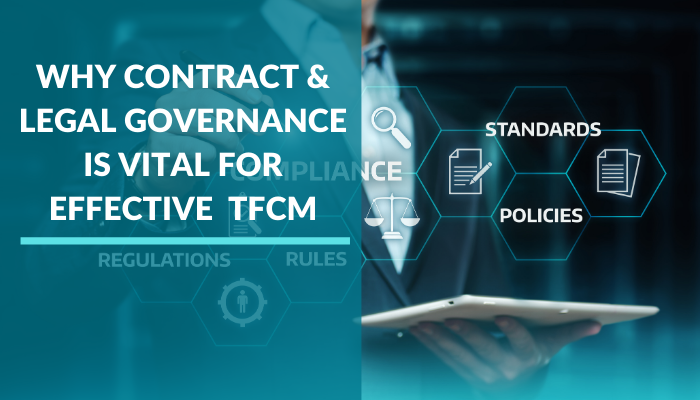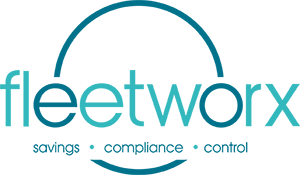
10 Sep Why Contract & Legal Governance is Vital for Effective TFCM
Once the fleet deal has been negotiated, the contract signed and the shiny new cars waiting to be integrated to the fleet, people could be excused for reclining in their swivel chair and thinking the hard work complete. However, this is not actually the case.
Managing the contract, overseeing the supply chain and applying robust governance principles are all required to keep the contract on track and mitigate the threat of contract cost-creep. So really, the hard work is just starting.
Contract governance is a specialist discipline that, due to being particularly resource intense, is often overlooked by fleet stakeholders; and this can prove a costly oversight. It is however an integral part of Total Fleet Category Management [TFCM].
To understand the concept of contract cost-creep, it is important to understand how lessor providers earn their money. Only approximately 20% of lessor revenues come from declared management fees: the numbers that are transparent and acknowledged within the contract. We know that this is fairly well understood by fleet stakeholders. What we find is less well understood is how lessors make up the balance. The remaining 80% are from costs that their client may not know actually exist.
- Supply chain rebate margin, examples being:
- manufacturer/importer/dealer rebates
- maintenance network rebates
- tyre and glass rebates
- Contract margins, examples being:
- interest margin
- contract adjustment margins
- early termination margins
- Re-charges mark-up, examples being:
- out of contract re-charges
- contract re-writes
These costs are all legitimately applied, when appropriate. But when they are not governed correctly, they provide opportunity for the lessor to apply margins to costs that would not happen if the contract was being managed tightly and robustly.
In fact, a company running a fleet of 500 cars or more could have as many as 60 individual cost types assigned to the fleet cost centre, many providing opportunity for the lessor to add margin.
The challenge of cost-creep only becomes apparent once the contract reaches mid-term. Dramatic savings are often achieved in the short-term as the contract is fresh, the lessor is eager to please and the finance department are only handling a small number of invoices. However, once the contract reaches mid-term, the lessor is behind budget and looking to claw something back, the cars are maturing and incurring costs and the finance department are becoming flooded by invoices against costs buried deep in the original contract, cost-creep becomes a very real issue.
No wonder cost-creep is such a problem area for mid to large company car fleets. This is why contract governance, in its many forms, is such an essential component of Total Fleet Category Management.
Contractual Governance
Contract Re-writes
Contractual terms with lessors differ significantly. But most agreements will contain a clause that allows the lessor to reset the parameters of the agreement should the mileage of a car deviate significantly from that on which it was contracted. If this goes unchecked it can be hugely detrimental to the customer and conversely, a great opportunity for the lessor to alleviate risk and increase margins. It is vital therefore that you retain sanction over any proposed changes and that you employ governance processes that will allow you to assess whether the proposed re-write is fair and equitable.
Order Approval
Managing the regular churn of company vehicles within a company car fleet is very resource intense. Controlling the order flow of new vehicles, managing the agreements between the employee and vehicle provider, and ensuring the orders meet the specification of the company policy are all disciplines that must be managed to ensure a slick, and accurate, order approvals system.
There is inevitable pressure from employees on lessors to add optional extras to new vehicles that are beyond the specification agreed between company and lessor. This inevitably leads to additional expenditure for the business and potentially vehicles that can be difficult to reallocate in the future.
These issues are avoidable if a robust selection process is devised and employed by those governing the contract. Entitlement levels are created that contain benchmarking vehicles, forming the basis from which the employees can make their vehicle choice. It is also important that the order approvals are made from an impartial viewpoint so that John in finance isn’t tempted to approve the super-executive pack for his pal Jim in Sales, when Jim is only supposed to request the slim-executive pack!
Invoice Management
The Accounts Payable [AP] department of business operating a mid to large company car fleet will be inundated by literally hundreds of invoices and thousands of line items, all issued from different suppliers, in different formats and at different frequencies.
Although the AP department is able to validate the invoices against original PO number, value and VAT, they are ill-placed to verify if the invoices can be assigned to identifiable assets in the supply chain. They are even less likely to review the invoice against what is expected from the original contract, thus it is virtually impossible for them to challenge cost items against the contractual terms or indeed identify duplicates.
Installing governance systems that allow invoices to be checked against the contractual terms of that vehicle will help remove errors and associated costs. Our experiences show that it is quite common for hundreds of invoice line items to be unassigned to a vehicle or driver, drawing into question their accuracy and legitimacy.
Early Termination
The early termination of an individual car lease provides the opportunity of a windfall profit for the lessor, as well as exposing the client to potentially punitive costs if the issue has not been addressed in the original contract. Correct contract governance will ensure both parties fully understand the methodology when early termination occurs for any reason, and it will negotiate a fair and equitable formula to minimise penalties and costs.
Legal Governance
The newly introduced IFRS16 accounting standards affect all publicly listed companies that operate a leased company car fleet. What were once classed as Operating Leases and could be reported on the P&L, are now, for the most part, outside of the classification of an operating lease [12 mths or less or less than $5k] and need to be reported on the balance sheet.
This change has brought into sharp focus the need for legal governance procedures, as reporting on the balance sheet means a far more sophisticated data recording process is required. What has taken many by surprise when attempting to gather this information is the huge variation of lease structures and reporting practices around EMEA, limiting the granularity of reporting in some cases to the lowest common denominator. It is not unusual in some less developed markets to only receive a single monthly rental figure which includes all services whereas, in others, finance and services are itemised to a granular level.
Collecting lease data accurately and timely is critical to successful IFRS16 reporting. The challenge however is that a complex supply structure creates a complex array of data formats. And where corporates often have centralised structures with scant resource, it is very difficult to maintain dozens of supplier relationships at the right level to retrieve and manipulate the information to the right standard.
Forming and nurturing relationships with all suppliers helps create a Total Fleet Catergory Management approach that ensures stringent and robust governance principles. This results in effective and greatly simplified reporting that reduces the resource need and ensures complete legal governance.
Governance is one vital component of the Total Fleet Category Management approach introduced by Fleetworx to company car fleet clients in sectors such as pharmaceuticals, high- tec, healthcare and finance, across EMEA and the rest of the world. To understand more about Total Fleet Category Management, download the new TFCM ebook or contact Graham Rees on +44 (0) 1926 353300
Back to Blogs Back to Case Studies List


Sorry, the comment form is closed at this time.